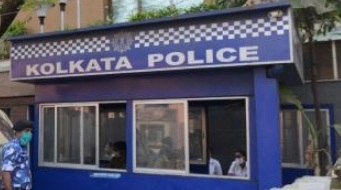Kolkata crime incident a reminder of law-and-order issues in poll-bound state
By IANS | Updated: September 16, 2025 16:30 IST2025-09-16T16:27:05+5:302025-09-16T16:30:07+5:30
New Delhi, Sep 16 The recent incident of a group of armed men storming a crowded market and ...

Kolkata crime incident a reminder of law-and-order issues in poll-bound state
New Delhi, Sep 16 The recent incident of a group of armed men storming a crowded market and firing in the air in the southeastern fringes of Kolkata has rekindled the debate over law-and-order issues in poll-bound West Bengal.
In a brazen show of apathy towards law enforcers, the same group allegedly returned the next day in the early hours and hurled bombs.
It was reportedly the result of a turf war between two groups, but the nonchalant display of muscle power has shaken not only the people of the locality but also most inhabitants in the state capital.
It could have been one of the sporadic incidents reported in the crime pages of daily newspapers. But in West Bengal, law and order are widely considered as under strain in 2025, with communal violence, political clashes, and administrative criticisms concentrated in border and vulnerable districts.
Common factors leading to such incidents include communal mobilisation over policy disputes, strong political polarisation, alleged administration and policing lapses, and entrenched local criminal economies that feed instability.
However, opinion is sharply divided along political lines over the reasons and for culpability, as expected. Perhaps leaders of the ruling Trinamool Congress (TMC) party have some reasons to believe that the state, with a party at the helm that is politically opposed to the one at the Centre, is under constant pressure, and sometimes overexposed.
Yet, citing similar issues in other states is akin to claiming that, in politics, too, like mathematics, two negative integers can result in a positive number.
Among the political disputes, it may perhaps be difficult to defend some criminal cases that the state witnessed.
Last year, the heinous case of the rape and murder of an intern in R.G. Kar Medical College and Hospital in August still haunts Kolkata. A civic volunteer was convicted and sentenced to life imprisonment. Amidst allegations of shielding the real faces, the case was handed over to the CBI, where the probe led to a similar conclusion.
In April, widespread protests in Murshidabad district were reported against the amendment of the Waqf Act, which turned violent. It led to several homes being vandalised. Hundreds of people fled, and 15 policemen were injured. The target was said to be a particular community, while the administration was alleged to be "lenient".
Border districts, like Murshidabad, Malda, and Uttar Dinajpur, have been witnessing a steady stream of illegal immigrants. With the Census of India pending since the last one was done in 2011, only an estimate can be made on available data, which leads to claims of a huge change in demography.
These districts have come under the spotlight previously, too. There have been clashes, cases of crude bombs going off while being assembled by miscreants, among others.
Poll violence at different levels -- from Parliamentary, to Assembly, to Municipality and Panchayat -- has been rocking the state.
Meanwhile, Central agencies are probing multiple, overlapping matters, including the ED’s coordinated raids and the CBI’s multi-count teachers’ recruitment investigations.
Though the TMC dismisses such cases as “politically motivated”.
But in the past, members of a Central agency probing the Sandeshkhali incident led to their manhandling by supporters of the alleged perpetrator.
Last year, it became a flashpoint in state politics, exposing deep-rooted issues of corruption, gender-based violence, and political impunity.
Allegations of systemic rape and coercion were widely reported in the media, prompting calls for deeper investigation. The ED and the CISF conducted multiple raids, though initial searches yielded little evidence.
All this while, several West Bengal matters are before the Supreme Court as well.
State elections are scheduled to be held around April-May next year.
Disclaimer: This post has been auto-published from an agency feed without any modifications to the text and has not been reviewed by an editor
Open in app